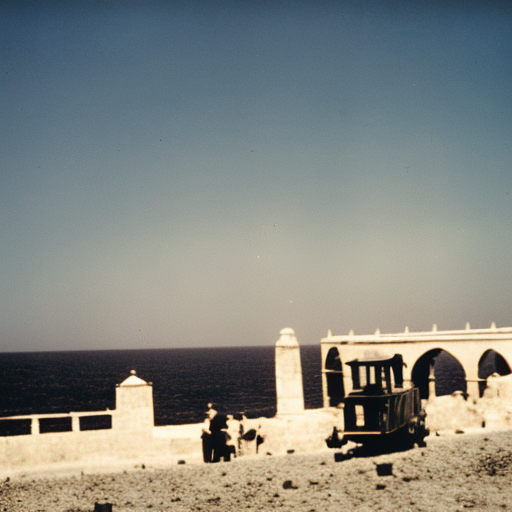Mediterranean Campaign of 1798: Napoleon’s Invasion of Egypt
The Mediterranean Campaign of 1798, also known as Napoleon’s Invasion of Egypt, was a military campaign led by French General Napoleon Bonaparte. The campaign aimed to establish French control over Egypt and disrupt British trade routes to India. It marked the beginning of Napoleon’s ambitious plans to expand French influence in the Mediterranean and the Middle East.
Background:
In the late 18th century, France was embroiled in the French Revolutionary Wars, a series of conflicts that followed the French Revolution. Napoleon, a rising military leader, saw an opportunity to extend French power beyond Europe and into the strategically important region of Egypt. By capturing Egypt, Napoleon hoped to undermine British trade interests in the Mediterranean and establish a French presence in the Middle East.
The Campaign:
In May 1798, Napoleon set sail from Toulon with a fleet of over 400 ships and an army of around 35,000 soldiers. His forces included infantry, cavalry, artillery, and a contingent of scientists and scholars to study and document Egypt’s ancient civilization. The French fleet successfully evaded the British navy and arrived in Egypt in July.
Upon landing, the French forces quickly defeated the Egyptian Mamluk cavalry in the Battle of the Pyramids, securing their control over Cairo. Napoleon then turned his attention to the British, who were based in Alexandria. The French laid siege to the city, and after a fierce battle, the British surrendered in August 1798.
With Alexandria under French control, Napoleon sought to consolidate his position in Egypt. He implemented a series of reforms aimed at modernizing the country, including the establishment of schools, libraries, and scientific institutions. However, his rule was met with resistance from the local population, who viewed the French as foreign invaders.
The Battle of the Nile:
While Napoleon was consolidating his power in Egypt, the British navy, under Admiral Horatio Nelson, launched a surprise attack on the French fleet in Aboukir Bay. The Battle of the Nile, fought on August 1-2, 1798, resulted in a decisive British victory. The destruction of the French fleet stranded Napoleon and his army in Egypt, cutting off their communication and supply lines.
Impact and Legacy:
The Mediterranean Campaign of 1798 had far-reaching consequences. While Napoleon’s initial goal of establishing a French presence in the Middle East was not fully realized, the campaign had a profound impact on the region. The French occupation of Egypt sparked a renewed interest in Egyptology and the study of ancient Egyptian civilization in Europe.
Furthermore, the campaign indirectly led to the rise of British influence in the Mediterranean. With the French fleet destroyed, the British navy gained control over the region, ensuring the security of their trade routes to India. The campaign also marked the beginning of a long-standing rivalry between Napoleon and Britain, which would continue throughout the Napoleonic Wars.
In summary, the Mediterranean Campaign of 1798, or Napoleon’s Invasion of Egypt, was a military campaign led by Napoleon Bonaparte to establish French control over Egypt and disrupt British trade routes. Although the French initially achieved success, their fleet was later destroyed by the British navy in the Battle of the Nile, stranding Napoleon and his forces in Egypt. Despite its ultimate failure, the campaign had a lasting impact on the region, sparking a renewed interest in Egyptology and contributing to the rise of British influence in the Mediterranean.












